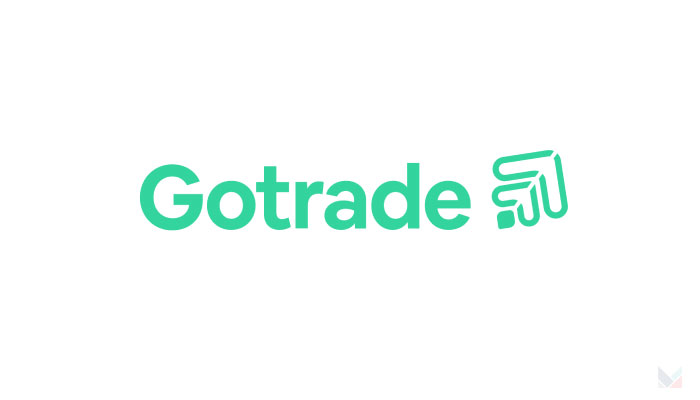
Effective Executive Coaching Programs for Professionals at CoachUp Singapore
Impact on Organizational Culture
Leadership coaching can have a profound impact on organizational culture. As leaders develop and refine their skills, they model positive behaviors and set the tone for the entire organization. Improved leadership practices lead to a more inclusive, supportive, and high-performing workplace culture. Employees feel valued and empowered, leading to higher levels of engagement, satisfaction, and retention.- Enhanced Self-Awareness
One of the primary outcomes of leadership coaching is enhanced self-awareness. Leaders gain a deeper understanding of their strengths and areas for improvement. This heightened self-awareness allows leaders to leverage their strengths more effectively and address their weaknesses with greater insight. By recognizing their unique qualities, leaders can develop a more authentic and impactful leadership style. Your Unique Leadership Voice
Ultimately, leadership coaching aims to develop transformational leaders. These are leaders who inspire and motivate their teams, drive change, and achieve exceptional results.Each leader is unique and therefore, all Leadership Coaching Programmes are unique.We typically work on organizational goals, the Leader’s goals and findings surfaced during 360-assessments.
Want to know more how CoachUp.sg can serve your unique needs? Tell us more about your needs
Professional Executive Coaching Services at CoachUp.sg
Unleash Your Leadership Potential with Personalized Coaching.
Leadership coaching is a dynamic process designed to unlock a leader’s full potential, fostering growth, resilience, and the ability to inspire and guide a team effectively. This article delves into the transformative power of leadership coaching, its benefits, and how it can revolutionize both professional and personal lives.
How Does Leadership Coaching Work?
Leadership coaching is a structured process designed to develop leadership skills, enhance performance, and achieve specific professional goals. Here’s an in-depth look at how leadership coaching works, from goal setting to assessment and progress measurement.
- Clear Goal Setting and Measurement Points At the onset of a leadership coaching engagement, setting clear, measurable goals is crucial. These goals should align with the leader’s personal aspirations and the organization’s strategic objectives. Effective goal setting involves identifying specific areas for development, such as improving communication skills, enhancing decision-making abilities, or fostering team collaboration.
- 360 Assessment A comprehensive 360-degree assessment is a key component of leadership coaching. This assessment gathers feedback from a range of sources, including peers, subordinates, superiors, and the leaders themselves. The feedback is collected anonymously to ensure honesty and candidness, providing a holistic view of the leader’s strengths and areas for improvement.
There are different types of assessments that can be utilized:
- Self-Assessment: Leaders reflect on their own skills, behaviors, and performance.
- Peer Assessment: Colleagues at the same organizational level provide feedback on the leader’s interpersonal skills and teamwork.
- Subordinate Assessment: Team members offer insights into the leader’s management style, communication, and ability to inspire and motivate.
- Superior Assessment: Supervisors or higher-level executives evaluate the leader’s strategic thinking, execution, and overall impact on the organization.
- Identifying and Addressing Gaps Based on the results of the 360-degree assessment, the coach and leader work together to identify the gaps between the current state and the ideal leadership outcome. These gaps represent the areas where the leader needs development to meet their goals and organizational expectations. The coaching process is then tailored to address these specific gaps. For instance, if the assessment reveals that a leader needs to improve their conflict resolution skills, the coaching sessions might focus on techniques for managing disputes effectively. If emotional intelligence is identified as a gap, the coach might introduce practices to enhance self-awareness and empathy.
- Tailored Coaching Strategies Each coaching session is designed to target the identified development areas through a mix of discussions, practical exercises, and reflective activities. The coach provides continuous feedback, supports the leader in overcoming challenges, and helps refine strategies to achieve the set goals. This personalized approach ensures that the leader receives the specific guidance and support they need to grow and excel in their role.
- Measurement Prior to the End of Engagement To ensure the effectiveness of the coaching program, progress measurement is conducted four weeks prior to the end of the engagement. This involves revisiting the initial goals and assessments to evaluate the leader’s development. Key performance indicators (KPIs) and metrics established at the beginning are reassessed to measure improvements and areas still needing attention.
Progress measurement can include:
- Follow-Up 360-Degree Assessment: A repeat of the initial assessment to compare feedback and highlight improvements.
- Goal Achievement Analysis: Reviewing whether the set goals have been met and to what extent.
- Behavioral Observations: Observations and feedback on changes in the leader’s behavior and approach.
- Self-Reflection: Encouraging the leader to reflect on their growth, challenges faced, and lessons learned.
- Enhance Leadership Skills: Executive Coaching Programs for Professionals-




Leadership coaching is a personalized process where a coach helps leaders develop their skills, self-awareness, and effectiveness. It focuses on enhancing communication, decision-making, emotional intelligence, and overall leadership abilities.
Leadership coaching offers numerous benefits, including improved self-awareness, better communication skills, enhanced decision-making, increased confidence, and the ability to inspire and lead teams effectively. It also fosters personal growth and well-being.
Leadership coaching engagements can vary in length, but a standard program often includes six sessions over a few months. The duration can be customized based on individual needs and goals.
While leadership coaching is highly beneficial for executives, it is also valuable for leaders at all levels, including managers, team leaders, and aspiring leaders. It helps individuals at various stages of their careers enhance their leadership skills.
During a leadership coaching session, you can expect personalized guidance, skill development, constructive feedback, and goal-setting. Your coach will work with you to identify areas for improvement and develop strategies to achieve your leadership objectives.
When choosing a leadership coach, look for someone with experience, expertise, and a coaching style that aligns with your needs and goals. It’s essential to find a coach you feel comfortable with and who understands your unique challenges and aspirations.
Why Choose CoachUp.sg</h
Certified Expertise
CoachUp.sg's certified coaches offer tailored coaching and training, ensuring each program meets your specific needs and goals.
Proven Tools
We use proven coaching and assessment frameworks to help enhance self-awareness, improve skills, and boost team collaboration.
Sustainable Results
With comprehensive support, CoachUp.sg empowers clients with actionable strategies for long-term success and fulfillment.

